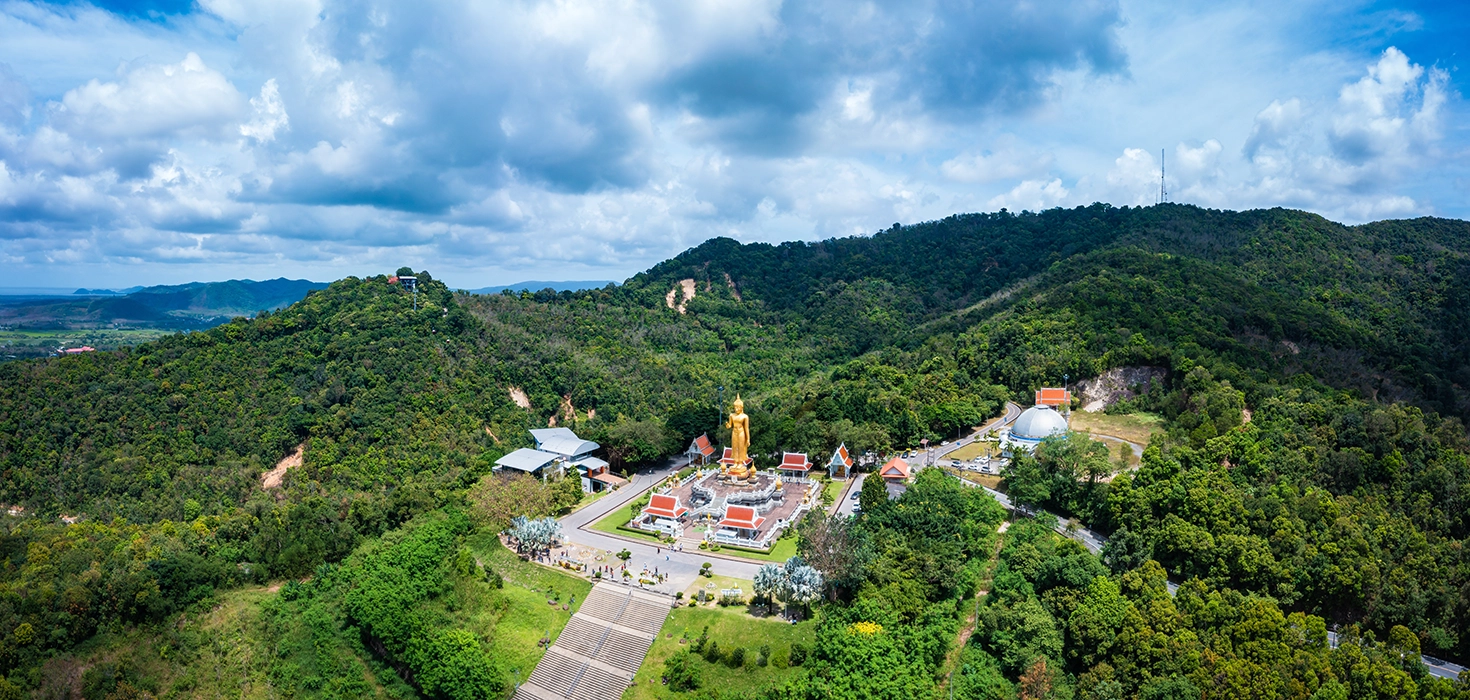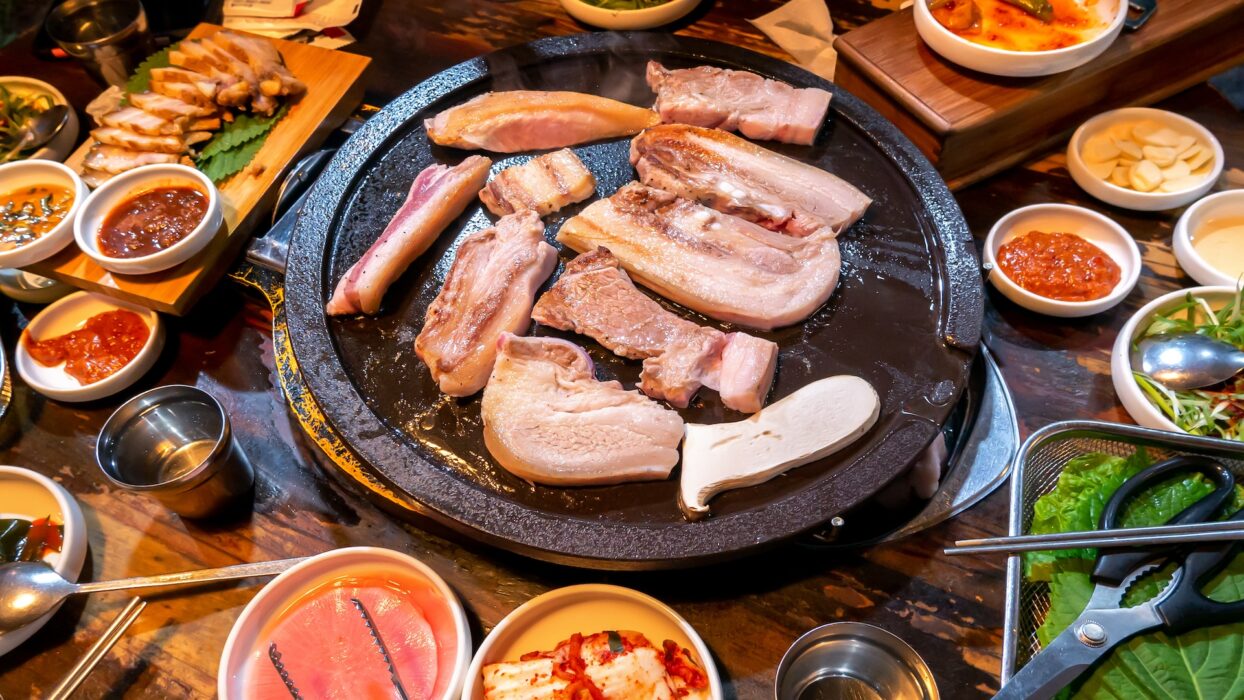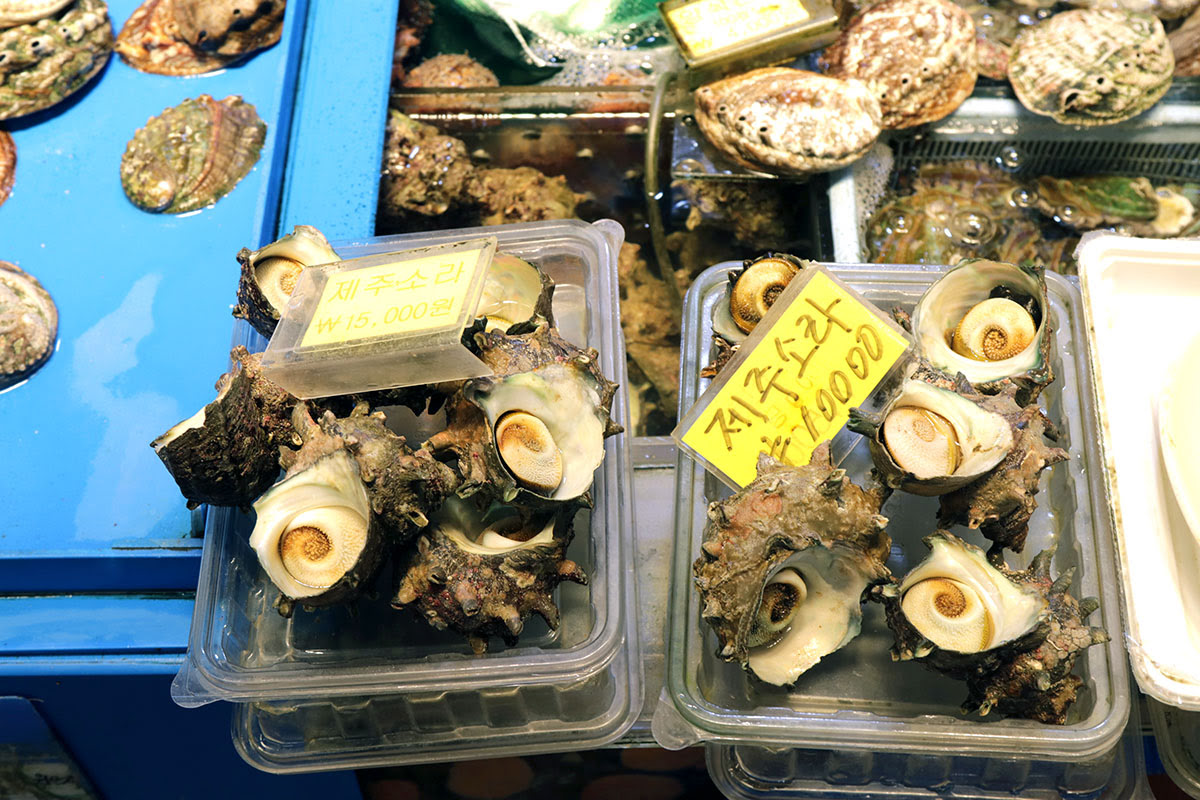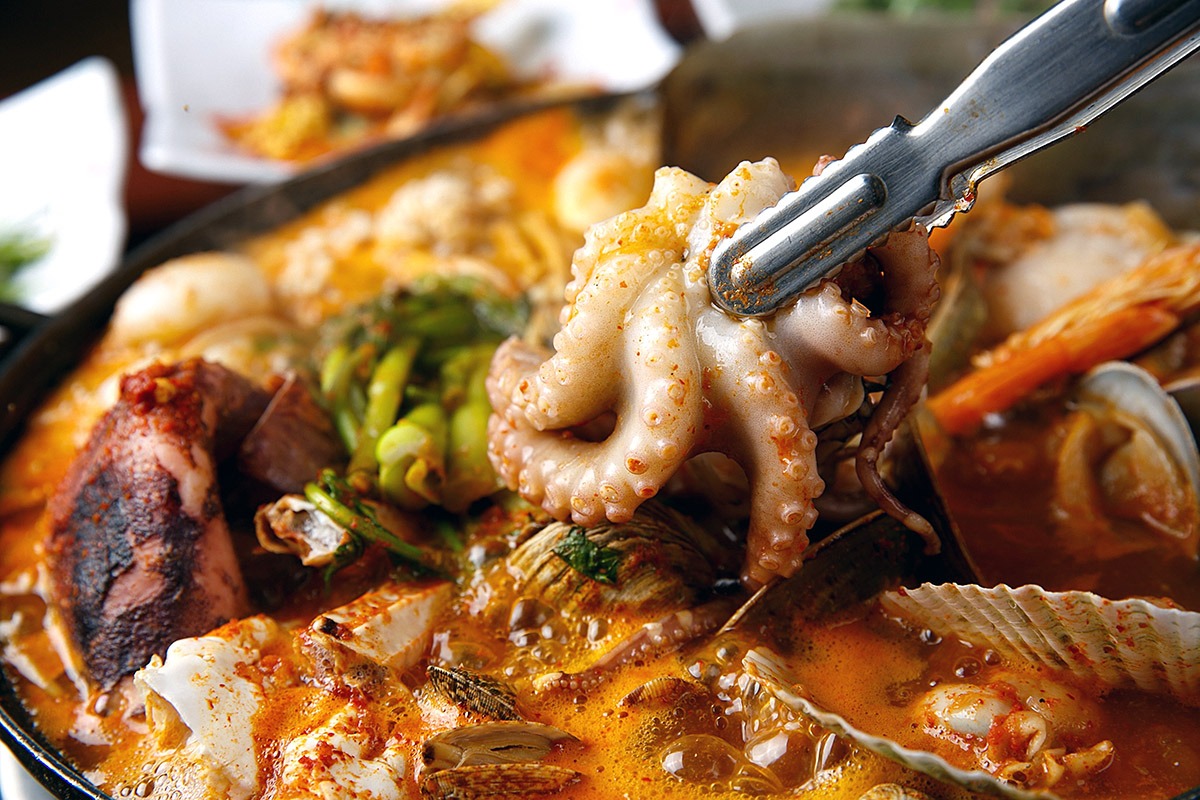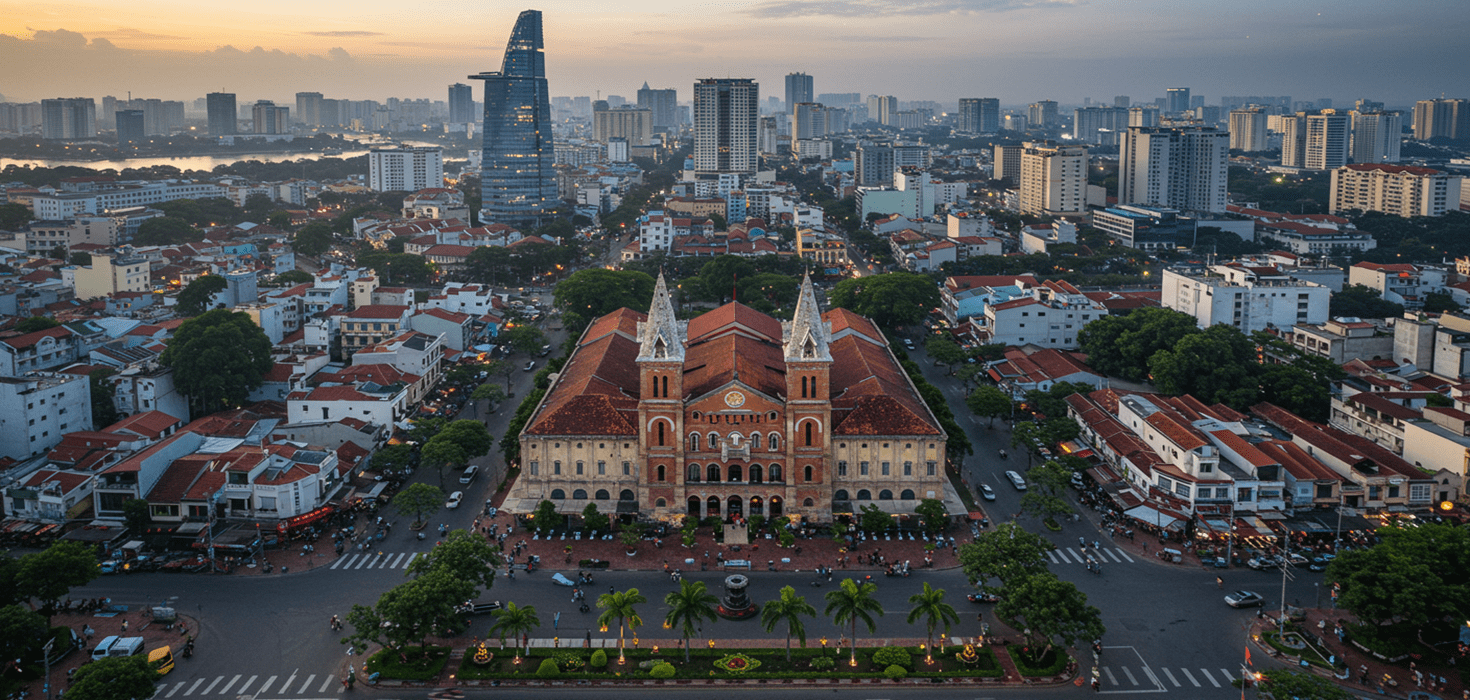Welcome to your ultimate culinary adventure in Jeju! This tour will take you through the vibrant food scene of Jeju Island, from mouth-watering street food to elegant gourmet dining.
Day 1: Street Food Extravaganza in Jeju City
On your first day, immerse yourself in the hustle and bustle of Jeju City. Known for its vibrant street food scene, Jeju City is the perfect place to sample traditional Korean street foods and local specialties. Here’s how to make the most of your day:
Breakfast: Dongmun Traditional Market
Start your day bright and early at Dongmun Traditional Market. Located in the heart of Jeju City, this iconic market has been serving locals and tourists alike since 1945. Wander through the stalls and savor a variety of breakfast options such as freshly made hobakjuk (pumpkin porridge), japgokbap (Korean multigrain rice), and jeonbok juk (abalone porridge). Pair your breakfast with a hot cup of traditional Korean plum tea.
Morning Snack: Black Pork Street
After breakfast, take a stroll to Black Pork Street to sample Jeju’s famous black pork. Try the heuk-dwaeji (black pork) skewers, grilled to perfection and seasoned with local spices. The savory, juicy meat will be a highlight of your morning.
Lunch: Jeju Five-Day Folk Market
Next, head over to the Jeju Five-Day Folk Market, which is teeming with local vendors selling a plethora of Jeju specialties. Here, you can sample a variety of foods such as freshly caught seafood, bindae-tteok (mung bean pancakes), and galchi-jorim (braised hairtail fish). Don’t miss the opportunity to try the famous Jeju tangerine, one of the island’s most beloved fruits.
Afternoon: Seogwipo Maeil Olle Market
In the afternoon, venture to the Seogwipo Maeil Olle Market. This bustling market offers a wide array of street foods and snacks. Try the ojingeo sundae (squid sausage), eomuk bokkeum (grilled fish cake), and haemul pajeon (seafood green onion pancake). Pair these savory treats with a refreshing Jeju barley tea.
Dinner: Dongmun Market Night Stalls
As evening falls, return to Dongmun Market where the atmosphere transforms into a night market. Indulge in a variety of street foods such as sundae (Korean blood sausage), grilled abalone roasted on the spot, and spicy tteokbokki (rice cakes). End your culinary day with a sweet treat of hotteok (sweet pancakes filled with brown sugar and nuts).
Day 2: Seafood Paradise and Cultural Feasts
Day 2 on Jeju Island promises a feast for seafood lovers and those intrigued by local culture. From bustling markets to serene seaside restaurants, today’s journey will dive deep into the oceanic delights and traditional flavors of Jeju.
Breakfast: Samseonghyeol Haemultang
Start your day with a hearty bowl of Samseonghyeol Haemultang, a traditional seafood stew made with various types of seafood such as abalone, crab, and shellfish. Located near the iconic Samseonghyeol Shrine, this restaurant offers a cozy ambiance and a perfect start to your seafood journey.
Mid-Morning: Dongmun Market’s Fish Section
After breakfast, head back to Dongmun Market for an exploration of the fish section. Witness the hustle and bustle of market life as vendors display their fresh catches. Sampling some sashimi or picking up fresh fish for a later meal can be an exciting midday activity.
Lunch: Gogi Guksu
The next stop is for a taste of Gogi Guksu (noodles with meat broth). Visit one of the well-known local spots, such as Jamae Guksu, where you can savor rich broth noodles topped with meat, an occasional diver from seafood but equally tantalizing.
Afternoon: Seongeup Folk Village
In the afternoon, take a cultural detour to Seongeup Folk Village. Taste traditional dishes prepared using age-old recipes and cooking methods. This heritage village offers a glimpse into Jeju’s rich culinary history.
Dinner: Haenyeo Experience
Finish the day with a unique dinner experience with the Haenyeo, Jeju’s famous female divers. Many seaside restaurants run by Haenyeo not only offer an opportunity to enjoy fresh, raw seafood but also to learn about the lives and traditions of these incredible women. Opt for a place like Haenyeoui Jip for authentic dishes like mulhoe (spicy raw fish soup) served with a local twist.
Day 3: Farm-to-Table Experiences and Traditional Jeju Flavors
Day 3 of your culinary adventure in Jeju focuses on farm-to-table experiences and dishes that highlight traditional Jeju flavors. Today’s itinerary brings you closer to the land and its bounty, ensuring a genuine connection with the island’s agricultural roots and culinary traditions.
Breakfast: Hallabong Citrus Farm
Kick off your day with a visit to a local Hallabong Citrus Farm. Jeju’s Hallabong oranges are renowned for their sweetness, and many farms offer guided tours and tastings. Enjoy a fresh citrus breakfast and perhaps participate in a fruit-picking session. The tangy yet sweet flavors of Hallabong make for a refreshing start to the day.
Afternoon: O’sulloc Tea Museum
In the afternoon, immerse yourself in the world of tea at the O’sulloc Tea Museum. Learn about the history of tea cultivation in Jeju and enjoy tasting sessions featuring a range of green teas. The museum’s adjoining tea rooms offer tea-infused desserts and more, ensuring a comprehensive tea-centric experience.
Dinner: Traditional Jeju Cuisine at Manjanggul Restaurant
End the day with a sumptuous dinner at Jeju Gommak Restaurant, which specializes in traditional Jeju cuisine. Try iconic dishes such as momguk (gulfweed soup), okdom-gui (grilled tilefish), and dombe gukbap (pork and rice soup). Each dish reflects the island’s rich culinary heritage, providing a perfect conclusion to your day.
Jeju Island, with its rich culinary traditions and innovative dining experiences, offers an unforgettable journey for every food lover. As you continue exploring Jeju’s culinary landscape, you’ll discover not just great food, but also the vibrant culture and warm hospitality that make Jeju truly special. So pack your appetite and get ready for a gastronomic journey through Jeju that you will cherish forever.
